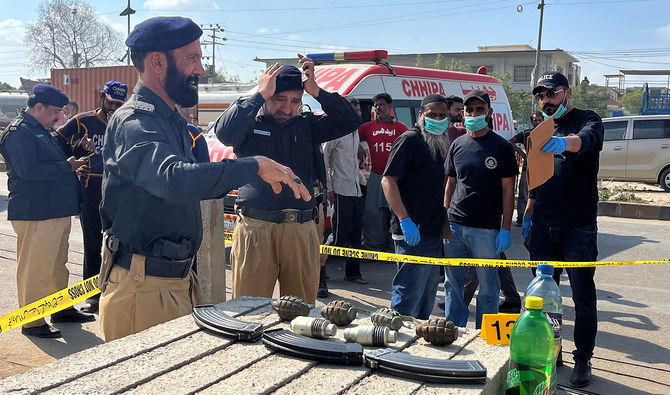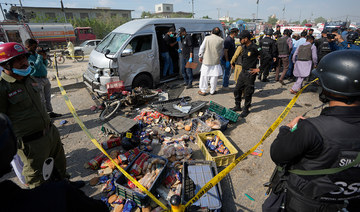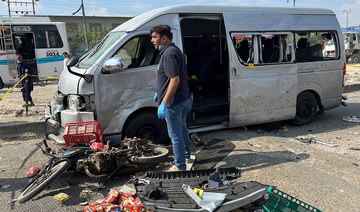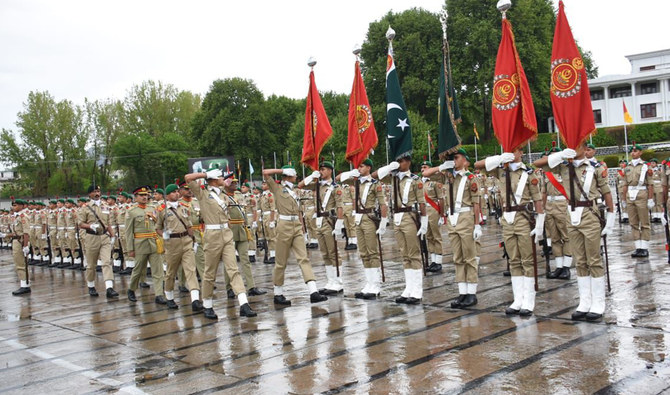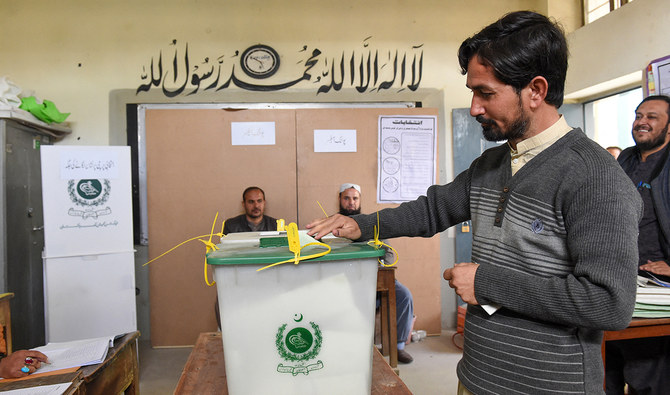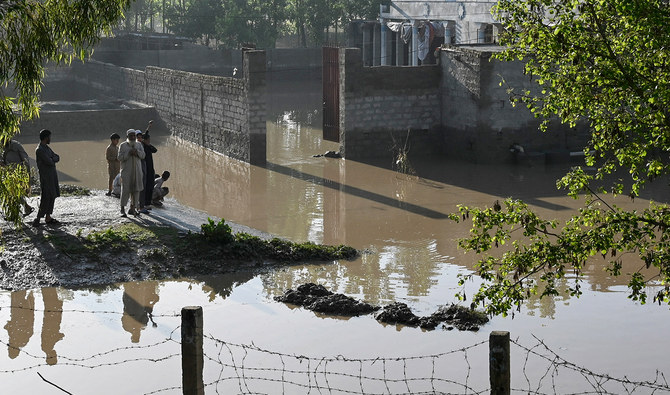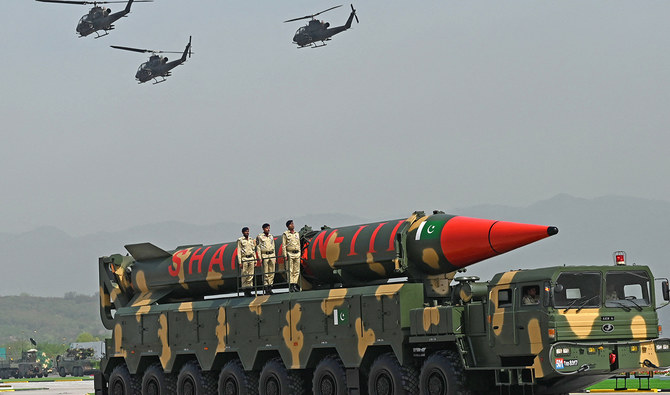ISLAMABAD: Opposition politicians have said this week that they discussed the issue of the all-powerful military’s interference in Pakistani politics at a meeting with the army chief last week where General Qamar Javed Bajwa and all parliamentary parties agreed that the army had intervened in the past but only when requested by civilian governments.
The September 16 meeting with Bajwa has generated much controversy in Pakistan and was attended by at least 15 opposition leaders, including Shehbaz Sharif, Khawaja Asif and Ahsan Iqbal from the Pakistan Muslim League-Nawaz (PMLN), Bilawal Bhutto Zardari and Sherry Rehman from the Pakistan People's Party (PPP), Jamaat-i-Islami chief Sirajul Haq, the Aawami National Party’s Amir Haider Hoti, and others. The head of Pakistan’s military-run ISI spy agency was also present at the meeting.
Pakistan’s powerful military has ruled the country for more than half of its history, and sets defence and security policy. It has in the past denied meddling in politics.
During the current army chief’s tenure, the military has been accused by opposition politicians of electoral manipulation, meddling in politics, suspension of civil liberties and muzzling the media. The military has denied all counts.
But at the meeting last week, Bajwa admitted that the army had meddled in politics, but only at the behest of civilian politicians and governments, at least three opposition politicians interviewed by Arab News said.
The army's media wing did not respond to detailed queries from Arab News sent via email.
“The gist of the army chief’s entire conversation was that in Pakistan, historically … whenever the military interfered - he [the army chief] gave his point of view - it happened because civilians provided the military this space, and sought the army’s help against each other,” Khawaja Asif, a senior leader of the PMLN and a former defence minister, said in a TV interview.
“There was consensus among all people [at the meeting] that politicians ceded territory [to the army], themselves invited the army,” he added.
Asif said the “consensus point of view” at the meeting, which the army chief agreed to and reiterated, was that in Pakistan’s history, “all components of the power structure have committed excesses, which includes politicians, establishment, the army, bureaucracy, courts, media.”
“This is a territorial dispute between different power centers and we should sit down under one roof and resolve it,” the former defence minister said, saying that the solution should be based on rule of law and the constitution.
“The territorial boundaries, according to the constitution: it is important to determine them,” he said.
Asif said the September 16 meeting was requested by the military to discuss the issue of the strategic Gilgit-Baltistan region in the northwest corner of disputed Kashmir to China. In recent weeks, government officials have said Pakistan plans to declare the region a fifth province, a proposal which has unnerved neighbouring India with which Pakistan has a territorial dispute over the Kashmir valley.
Asif said it was PPP senator Sherry Rehman who raised the issue at the meeting that the prime minister should have been present at a huddle at which a “legal and constitutional” issue such as making Gilgit-Baltistan a new province was being discussed.
“From here, the direction of the meeting, the discussion, changed, and went in the direction of why does the army have to interfere … basically politicians provide this space… the discussion went into this direction,” Asif said. “And the prime minister’s absence became a kind of testimony, that if the prime minister had been here, if prime minister had taken charge of things, then the army chief or the military would not have had to call parliamentary leaders to discuss this but the issue [of Gilgit-Baltistan] would have just been discussed in a committee room in parliament.”
Senator Sherry Rehman confirmed to Arab News that she had raised the issue of the prime minister’s absence at the meeting with the army chief. “Why was this meeting not convened at the PM House,” she said she had asked the meeting’s participants.
PMLN politician Ahsan Iqbal also said the army chief had called the meeting because the prime minister refused to sit down with the opposition or discuss Gilgit-Baltistan in parliament.
“The prime minister is continuously refusing to sit with the opposition,” he told Arab News. “How can the system work this way?”
Sheikh Rashid Ahmed, minister for railways, quoted the army chief at the meeting as saying the army was bound to respond “positively” when an elected government requested them for help.
Senior journalist and head of Hum News, Mohammad Malick, said politicians often “dragged” the military leadership into political issues.
“Why do politicians go to the military instead of using forums like parliament, media and judiciary?” he asked. “When you will take an issue to a state institution, then the institution will definitely give its viewpoint and suggest a preferred course of action.”
He said parliamentarians should have the courage to take ‘big decisions’ instead of looking towards the military for support.
“The military does intervene in many areas, but it doesn’t mean that it intervenes in each and every issue,” Malick said. “We can’t blame them for the sins they haven’t committed.”




